Search
Remove Ads
Advertisement
Summary 
Loading AI-generated summary based on World History Encyclopedia articles ...
Search Results
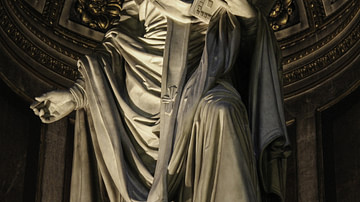
Definition
Augustine of Hippo
Aurelius Augustinus Hipponensis (354-430), better known as Augustine of Hippo, is extolled as the greatest of the Christian Church Fathers. More than any other writer, he developed what would become known as systematic theology, or an explanation...

Article
Saint Augustine of Hippo & His Confession of Faith
Few theologians have attained as much renown and influence in history as Saint Augustine of Hippo (354-430 CE), a 'Doctor' of the Catholic Church and simply known by his peers as 'The Knowledgeable One.' A brilliant man who never sought to...
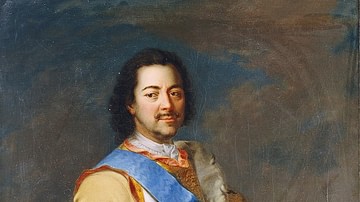
Definition
Peter the Great
Peter I of Russia (Peter the Great) was the Tsar of Russia from 1682-1721 and Emperor of Russia from 1721-1725. During his long reign, Peter had absolute power and brought real change to Russia, including building its first navy, introducing...

Definition
Saint Peter
Saint Peter the Apostle was a well-known figure in early Christianity. Although there is no information on the life of Peter outside the Bible, in the Christian tradition, he is often depicted as the first on many occasions: the first to...
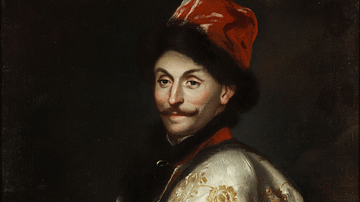
Article
The Grand Embassy of Peter the Great
The Grand Embassy was the name given to the long Western European tour that Tsar Peter I of Russia (aka Peter the Great, r. 1682-1725) undertook during 1697-1698. Peter was joined by hundreds of people, including noblemen, his friends, volunteers...
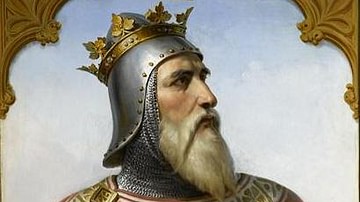
Definition
Robert Guiscard
Robert Guiscard (1015-1085) was a Norman knight best known for conquering much of Southern Italy and Sicily during the 11th century. His many exploits include the expulsion of the Byzantines from Italy, support of a reformist papacy, and...

Article
St. Augustine: from The Literal Meaning of Genesis
Saint Augustine of Hippo (354-430 CE) most famous for his work Confessions and his City of God, is regarded as one of the Fathers of The Church in the tradition of Catholicism. In this brief essay from his The Literal Meaning of Genesis...
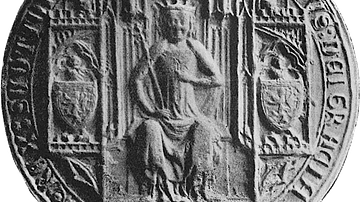
Definition
Robert II of Scotland
Robert II of Scotland ruled as king from 1371 to 1390. Born Robert Stewart, he succeeded the heirless David II of Scotland (r. 1329-1371) and so founded the royal house of Stewart. Dividing Scottish estates between his many offspring, Robert...

Article
The Reforms of Peter the Great
Peter I of Russia (Peter the Great, l. 1672-1725) was the Tsar of Russia from 1682 to 1721 and the Emperor of Russia from 1721-1725. The lasting impression of Peter's long reign is the significant changes he brought to Russia due to his various...

Definition
Robert the Bruce
Robert I of Scotland, better known as Robert the Bruce, reigned as King of Scotland from 1306 to 1329 CE. For his role in achieving independence from England, Robert the Bruce has long been regarded as a national hero and one of Scotland's...